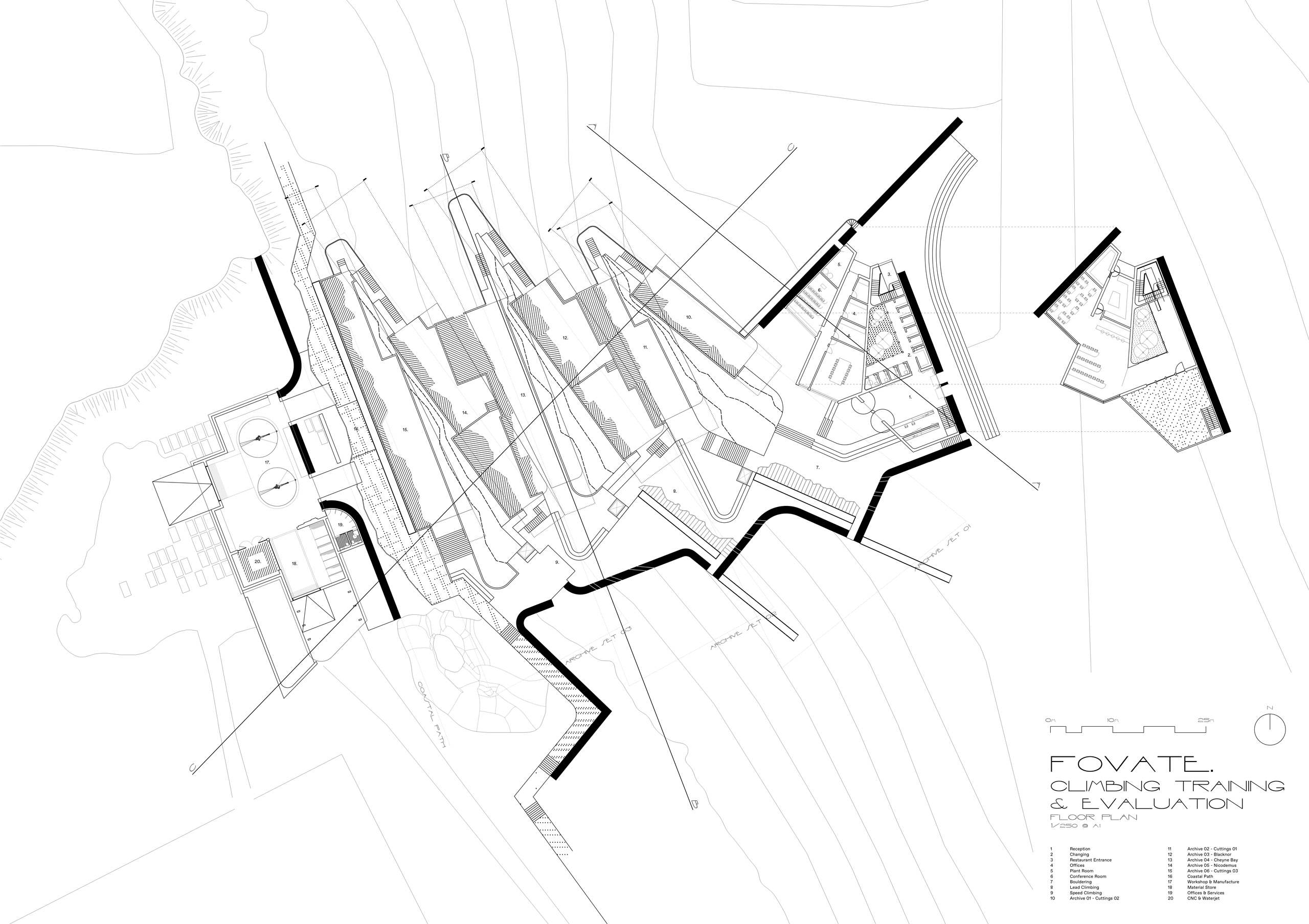DEFINING THE ARCHITECTURAL FOVEAL
Within the scarred landscape of Portland, a proposed climbing research and training centre explores the agency of the eye’s gaze as a design tool. Through experiments in spatialising foveated level of detail (LOD), the fixations and saccades of the eye are utilised to encode and refine spatial narratives. Whilst utilising the same technologies to explore new climbing typologies within the centre. Serving as an attempt in lessening the dissonance between the imagined and experienced architecture, the climber, and the wall.
Alongside hosting formal sports climbing events regulated by iFSC (International Federation for Sport Climbing), the centre also facilitates an archival system, utilising photogrammetry to capture climbing routes present around the world within the architecture. Acting to preserve and celebrate historical climbs at risk of disappearing to rock fall and weathering. This process manifests as a collaboration between the existing quarrying industry on Portland and the international climbing scene, breathing new life into Portland’s wavering economy and social mobility.
Eye-Tracking the Cliff Face at Cheyne Bay
Using 2D positional data obtained from the eye-tracker and known positional data from the camera, vectors are projected onto the scan geometry.
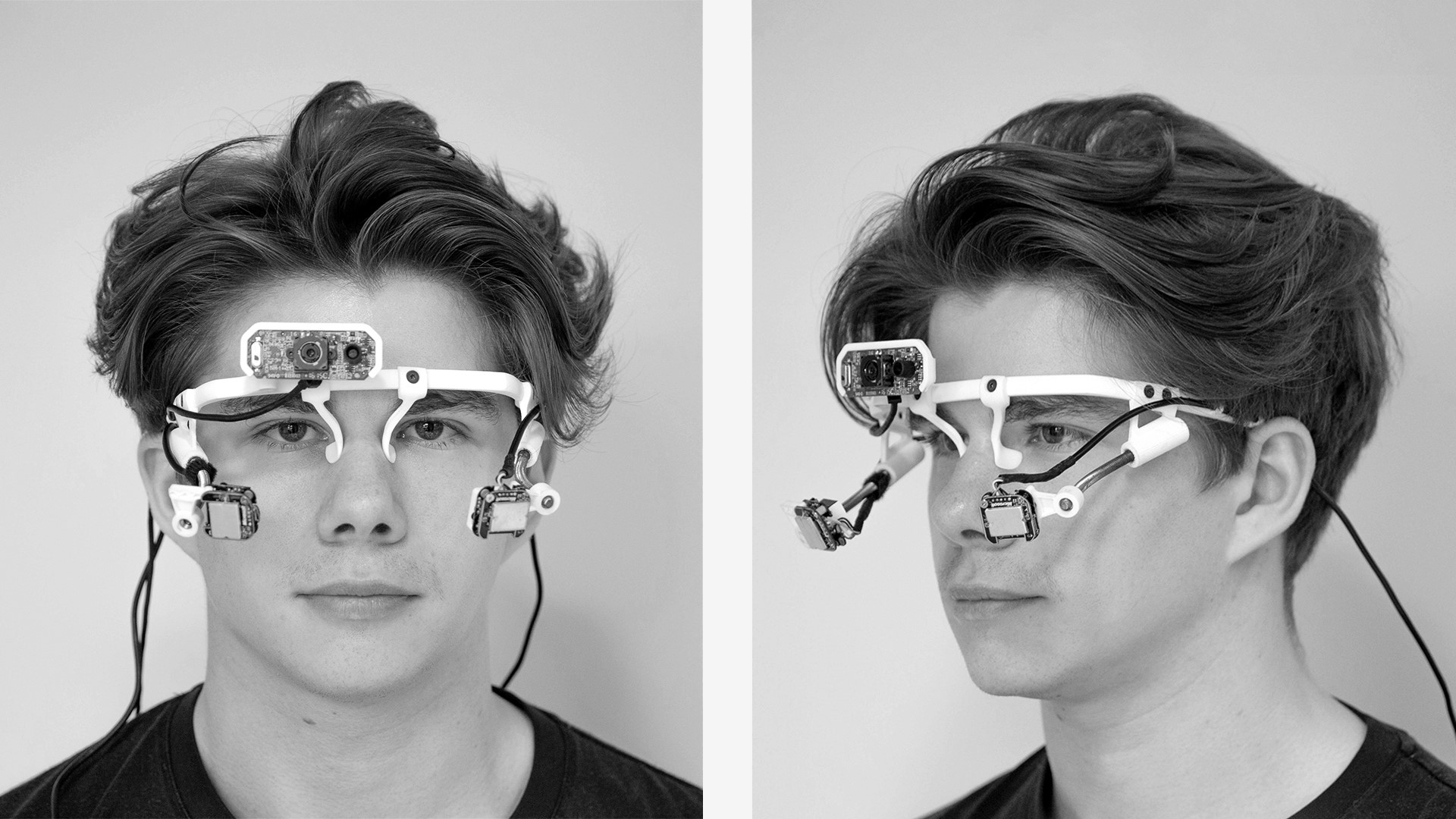
The Eye-Tracking Headset
A custom eye-tracking headset was designed to achieve sub-2° gaze accuracy. Featuring 2 IR eye-tracking cameras and a world camera for calibration. This allows for the accurate encoding of eye-tracking data within the architectural space.
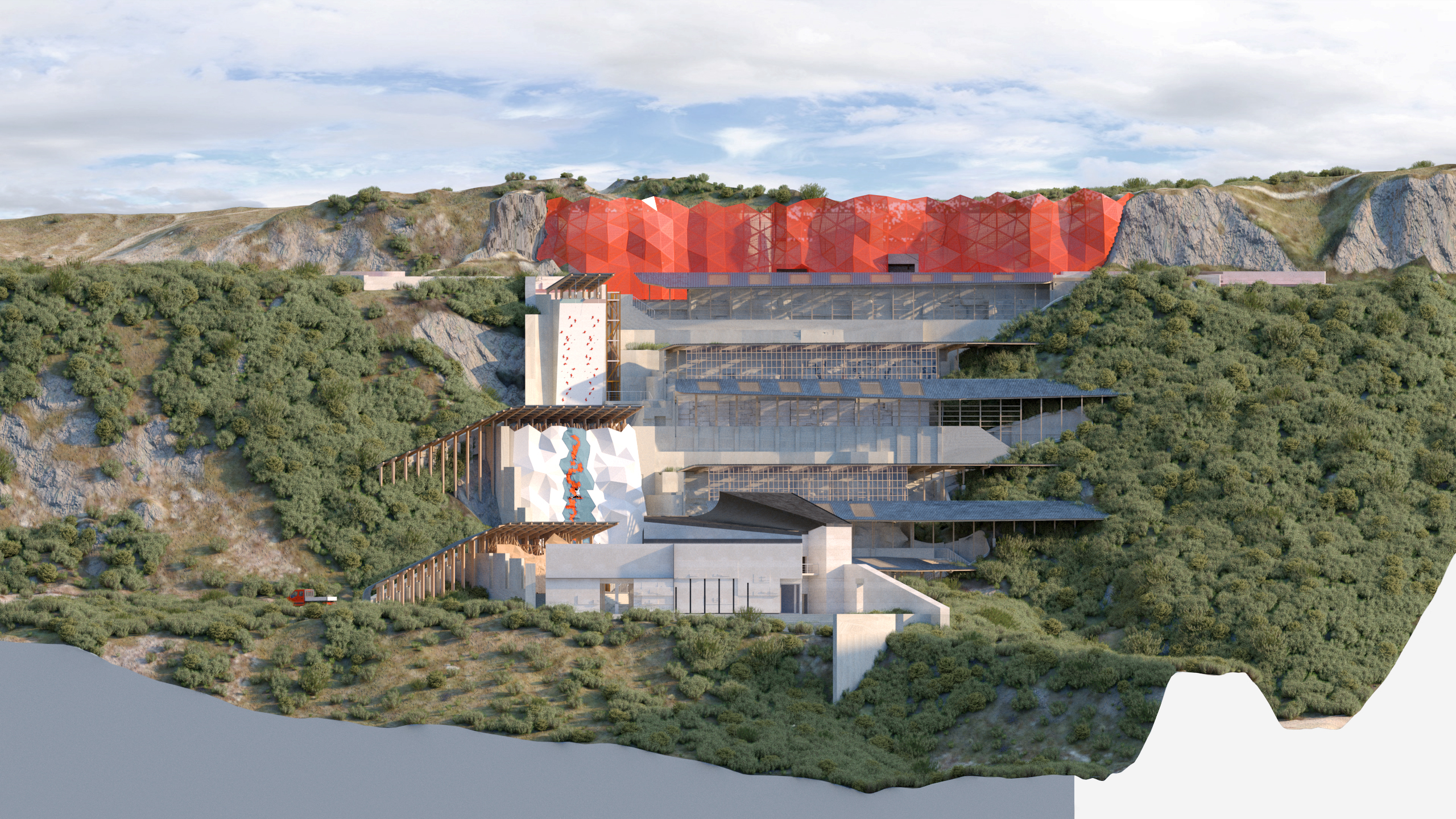
North-East Elevation – Embedded Within the Hillside
The climbing archival spaces are cut directly from the hillside, utilising a combination of quarrying machinery and 6-axis robots.
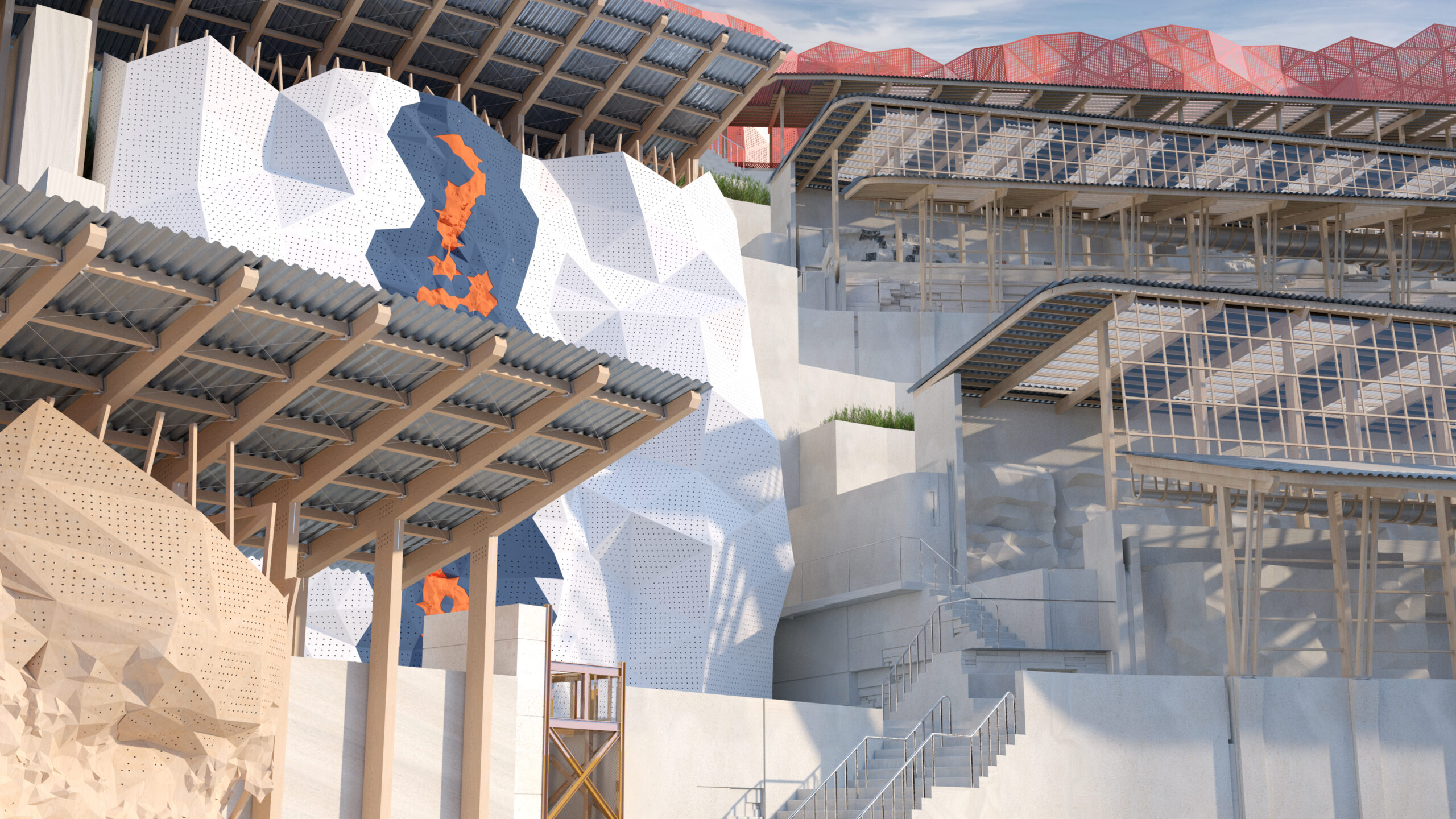
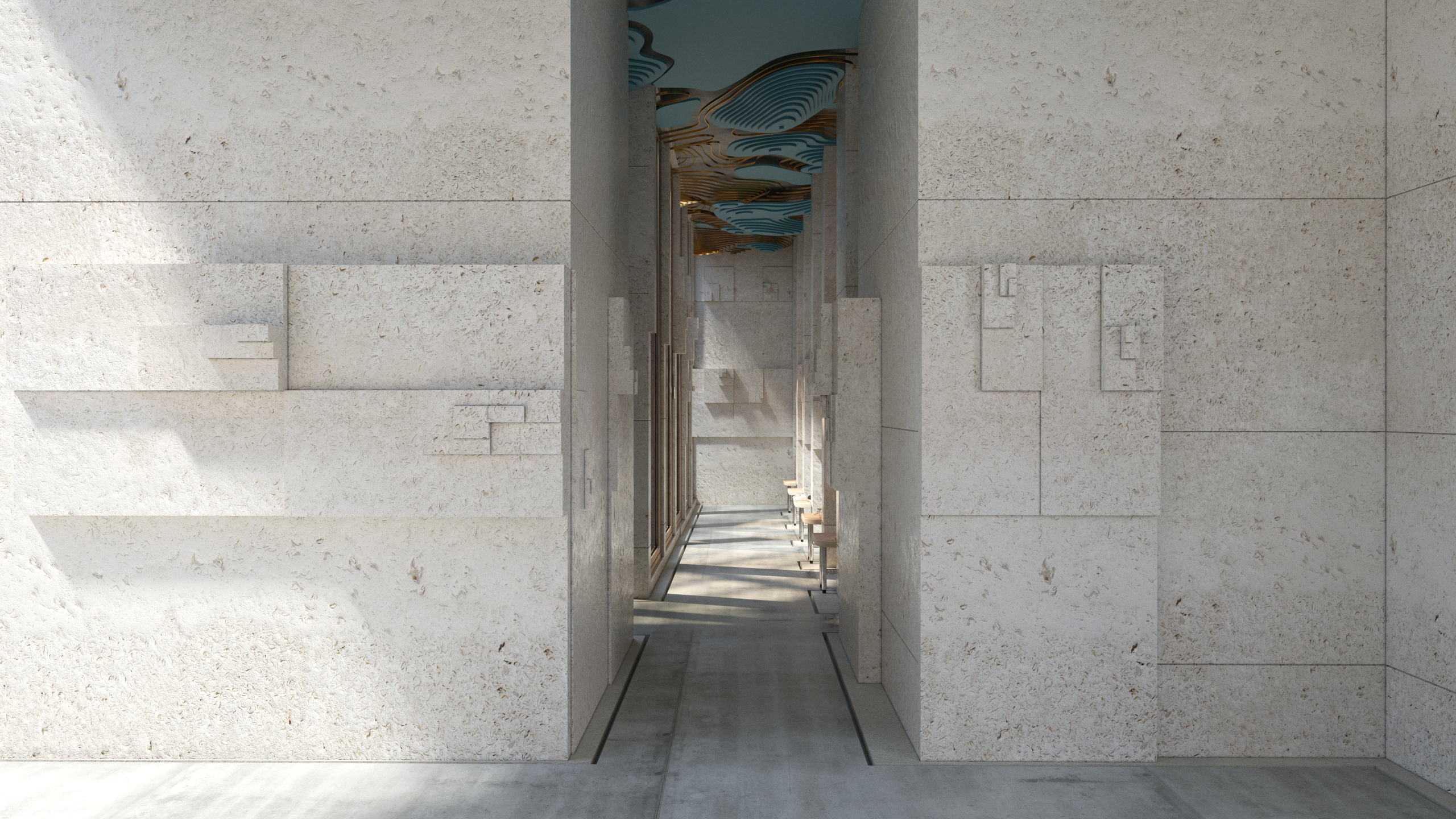
Encoding the Narrative
The eye-tracking information is encoded within the space, directing the users through the centre. Parameters such as saccades and fixation are utilised to define a hierarchy of information.
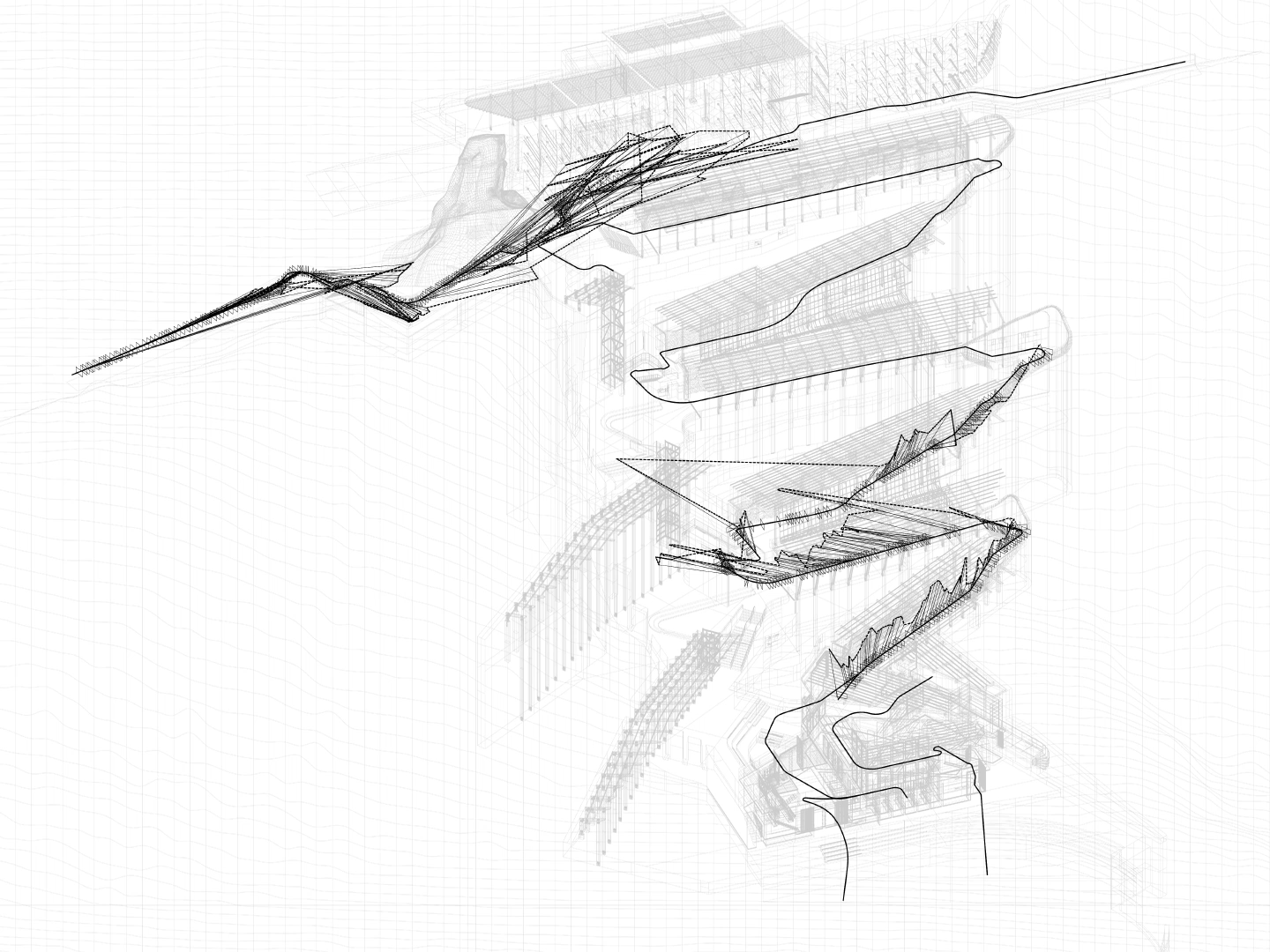
Gaze Pathways
Emerging narratives within the space are mapped and tracked. The eye-tracking data then projected onto the space for manipulation. Seldom viewed areas recieve lower design attention, while the highest gaze traffic recieves the greatest architectural resolution.
